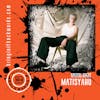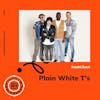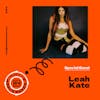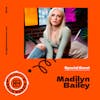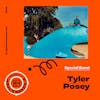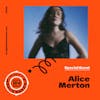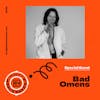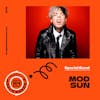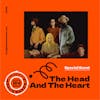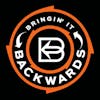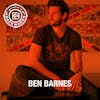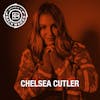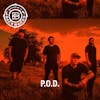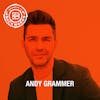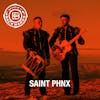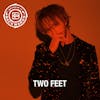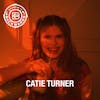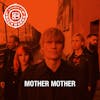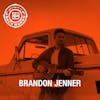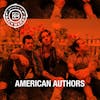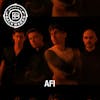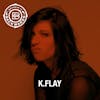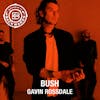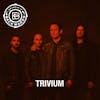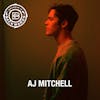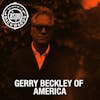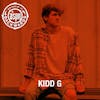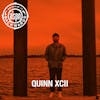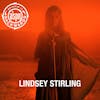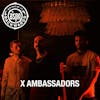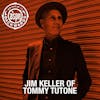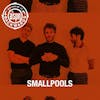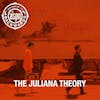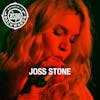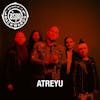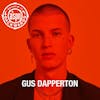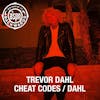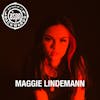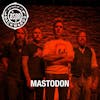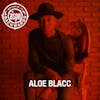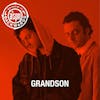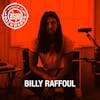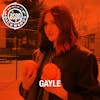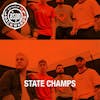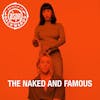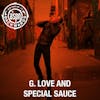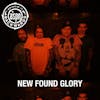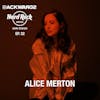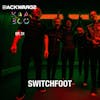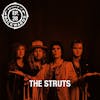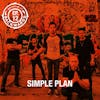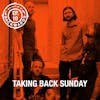Interview with Lizzie & The Makers
We had the pleasure of interviewing Lizzie & The Makers over Zoom video!
“It’s almost like when we wrote these songs they went through a David Lynch portal, they came out a little bizarre,” says frontwoman Lizzie Edwards on the creation of Lizzie...
We had the pleasure of interviewing Lizzie & The Makers over Zoom video!
“It’s almost like when we wrote these songs they went through a David Lynch portal, they came out a little bizarre,” says frontwoman Lizzie Edwards on the creation of Lizzie & The Makers’ sophomore album Dear Onda Wahl announced for release on November 5, 2021 [independently] and produced by acclaimed producers Reeves Gabrels (David Bowie, Tin Machine) and Mario J. McNulty (David Bowie, Prince). Infusing elements of art-rock, dream-pop, and a celestial atmosphere, Lizzie & The Makers has spawned something entirely their own.
Ahead of this sophomore studio album announcement, Lizzie & The Makers had released two singles - the rootsy spellbinding ethereal tune “Mermaid” which American Songwriter called "an enchanting dip into bluesy synth-pop waters" and, more recently, the blues rock stomper "Lover By Proxy" which Glide Magazine highlights the “Led Zeppelin-esque bluesy guitar riff and Edwards’ electrifyingly soulful vocals.”“Queens” & more.
Elsewhere on the upcoming album, there’s the sultry bluesy reverberation of "Magic River" for which Edwards penned the melody for after a post-Whitesnake listening binge. There’s a grimy, hard hitting rock track ("Bottle"), which Edwards says is about “being a woman in the rock/blues genre and in music and the word in general", a bouncy rock love-hate letter (“Les Idiots”) to certain “characters” posing in her hometown, NYC's East Village, and a haunting and cathartic groovy, slow rock jam ("Waiting For The Teeth”) about healing. The curiously named title track "Dear Onda Wahl" is a play on words that refers to a metaphorical letter she wrote to a mounted hunting trophy at the bar where she worked, i.e "Deer On The Wall", "Dear Onda Wall." A funky number that was written during a slow workday behind the bar, Edwards gazed at the mounted deer head asking it for love advice: “Deer on the wall, what’s the point of it all?" The forlorn tune "Tell Her” is a contrasting musical companion of sorts to the more playful "Lover By Proxy” that highlights Edwards heartfelt, nuanced vocal tone, influenced by Memphis soul legend Ann Peebles, Heart’s Wilson sisters, Alison Mosshart of The Kills and Katie Crutchfield of Waxahatchee. The haunting, seven-minute closing track “Mojo Hand” is soaked in McMullen’s borderline sci-fi sonic sorcery and Edwards’ enunciated occultic metaphors; producer Reeves Gabrels also contributed to the track, adding to the otherworldly vibe.
We want to hear from you! Please email Tera@BringinitBackwards.com.
www.BringinitBackwards.com
#podcast #interview #bringinbackpod #Lizzieandthemakers #Lizzie&TheMakers #NewMusic #zoom
Listen & Subscribe to BiB
https://www.bringinitbackwards.com/follow/
Follow our podcast on Instagram and Twitter!
https://www.facebook.com/groups/bringinbackpod
We'd love to see you join our BiB Facebook Group.
1 (27s): Y hello. It is Adam. Welcome back to bringing it backwards. A podcast where both legendary and rising artists tell their own personal stories of how they achieve stardom. On this episode, we had a chance to hang out with Lizzie of Lizzie and the makers over zoom video. Lizzie was born and raised in New York city, and she talks about where she grew up and how she got into music. She comes from a musical household. Her grandfather was an opera singer. Her dad was in a band. Musician actually still plays in a band, not professionally anymore, but they're all a huge influence on Lizzie growing up, she went to a bunch of musicals on Broadway and different jazz clubs. She got into songwriting when she was in college, but she took music theory from like four years old on piano lessons. 1 (1m 13s): Didn't join a band until she was in college. When she started writing songs, she talks about the first open mic night she played and that's where she met the guitar player. Then ended up joining her band for a while. We learned how the band Lizzie and the makers started the two incredible producers that they worked with on this brand new record one who's in the cure and work with Bowie. The other guy worked with Bowie. She'll tell you who they are when you listen to the interview. And we talk a lot about the new record from Lizzie and the makers. You can watch the interview on our Facebook page and YouTube channel at bringing it backwards. We would love it. If you subscribe to our channel like us on Facebook and follow us on Instagram, Twitter, and TechTalk at bringing back pod. 1 (1m 56s): And if you are listening to this on apple music or apple podcasts or Spotify, if you could follow us there and leave us a five star review, that would mean the world to us. Thank you so so much. 2 (2m 9s): I appreciate your support. If you follow and subscribe to our podcasts, wherever you listen to podcasts, 1 (2m 15s): We're bringing it backwards with Lizzie and the makers. My name is Adam, and this is about you and your journey and music. 3 (2m 23s): Cool. 1 (2m 26s): Awesome. So I guess we always start off with where you're born and raised. So where were you born and raised? 3 (2m 33s): Born and raised in New York city and Manhattan. Yeah. Born at Mount Sinai, Iowa native new Yorker. That still lives here. Rare, rare breed. 1 (2m 43s): Sure. Yeah. I'm from San Diego and not in California, not a lot of people born and raised in California and a lot of transplants there. That's awesome. What was it like growing up in the city? Did you have a lot of, I would imagine you had a lot of freedom. 3 (2m 56s): Yeah. I mean, had a lot of access to cool themes. You know, like I grew up near Lincoln center, got to, for me, going in musicals on Broadway was pretty normal, which is cool. I don't think growing up, I realized the extent to which that was an advantage. Other people didn't have, but really a lot of the access to live music is what I remember most and what really kind of inspired me to pursue it myself, you know, jazz clubs, opera show tunes, whatever, what happened. Really cool. But yeah. 3 (3m 35s): Intense. 1 (3m 38s): Yeah. Because you can essentially get anywhere. That's what I always think is crazy is that you can get on a subway and ER, yeah. Get on the subway and go like to Jersey, you can go anywhere. Right. I mean, essentially you have the freedom to just bail, California. You have to literally give a car or have a car to get anywhere. Yeah. 3 (3m 57s): I, you know, I was talking to someone about that yesterday. I have a lot of friends that live in LA and there've been a few times where I've thought about jumping ship and moving there. And then we know a kid sit in traffic for an hour to go a mile. They just can't do that. 1 (4m 12s): You're better off just walking. Right? Yeah. It's, it's, it's definitely a different, different pace for sure. And when it comes to that stuff, even in San Francisco, I lived in San Francisco for a handful of years and you could, you could get around, but not as easily as you would think. I mean, you can get around the city, but if you're in the east bay or anything else, it's not as easy as it is there. So how did you get into music? I mean, obviously going to musicals and show tunes and lots of stuff was in your childhood, but like what did you play piano at a very early age? Or like, where did your journey start? 3 (4m 51s): So I actually did. I started taking music classes, like music theory classes when I was about four. And so my, my dad was a musician. My grandfather was an opera singer and my grandmother wasn't the classical harp support is. 1 (5m 11s): Okay. So yeah. It's all throughout your family. It sounds like. 3 (5m 14s): Yeah. I don't think I really had a choice, but luckily I loved it, so it didn't matter. And then I did start taking piano lessons, I think the year after I started using the classes, because there's another girl in my class taking piano lessons. I was jealous. So, 1 (5m 31s): So you were taking music theory before even playing a note. Yeah. So what I get well, correct me. I, I thought music, I don't really know. I didn't study music theory by any means. I, I, I liked speaking to people on this subject, but not, I'm no player by any means, but so music, isn't music theory, more learning about why notes go with certain notes, go together. And what's the real behind the curtain of music theory. 3 (5m 60s): I think when, when you start, first of all at a young age, I mean, they're not getting too advanced, but a lot of it is learning to read music, you know, just read music. What, what a time signature is. I think I remember as a kid, as having drums and learning how to like play different time signatures, it's like the very basic building blocks that help you kind of pick up an instrument. So 1 (6m 31s): I didn't realize it was that in depth when it comes to saving. I mean, prior to that, 3 (6m 37s): Yeah. And like your training too is a big thing. Just recognizing intervals, 4 (6m 44s): American corn farmers, a proud and chosen profession, inspired through generations, tested resilient, and committed to giving back as much as they're growing, pushing the boundaries of what's possible with every bushel while replenishing every increasingly precious resource, like the reduction of soil loss by 40%, with every acre grown in a world where sustainability matters more than ever, we need to all the help we can get. And there's no greater resource than the capable hands of American corn farmers. 3 (7m 14s): Being able to, to know what the intervals are without, you know, just by hearing them and not by seeing them on the instrument or seeing them on sheet music, which I think really helps has helped me as a singer. I mean, it really having the air training's invaluable, but sure. I was a pretty serious child. 1 (7m 35s): Well, you said your dad was a musician. Is he like professional professionally? Is that what he did? 3 (7m 40s): Yeah, he, he did for a while. So he was not classical. Like his parents, he played guitar, had a rock band grew up in Iowa and their band was kind of like when they were teenagers, they would play, they would support other musicians touring through the Midwest. So like, my dad played with Chuck Berry a bunch when he was touring through Iowa and, and, and the neighboring states there. So he did that for a while. And then in 1969, his whole band got drafted to me, set for him. So the band broke up and he went to law school. 3 (8m 21s): So he, 1 (8m 23s): I mean, wow. Oh my goodness. Okay. Yeah. Then he's what a lawyer now. 3 (8m 29s): Yeah. Yeah. He, but he still, you know, still plays, plays a lot and makes me sing back up in his band. 1 (8m 38s): Oh, that's playing again. He's doing 3 (8m 40s): Begrudgingly as a daughter. Yes. 1 (8m 44s): Very cool. Well, okay. So you started playing piano. What, after you took the music theory class? 3 (8m 49s): Yeah. So around four or five, I started playing classical piano, which I really liked. I really liked composers like Chopin and rock wild enough. They were kind of like the angst and music I related to growing up. You know, some people have like Fiona apple or Tori Amos. And I had my French, you know, moody composers that channeled my teenage rage and, and just hopelessness. But, but yeah, I think, and then it wasn't really, until I think I was like 11 or 12 where I just started noticing I kind of had a talent for singing. 3 (9m 36s): I, so I, you know, did it in school, staying in the chorus and by college, I think I really gravitated towards jazz and blues. So that's kind of how that journey went. It was very chronological. 1 (9m 53s): Yeah. Did you, did you go to college for music? 3 (9m 57s): I, I did minor in music in college. I was going to major and I was a very irreverence college students. So I just seem to disagree with all of my professors about various things. So I ended up minoring instead of majoring in music, but initially my intention was to, to go there for music. So I still came out. Okay. The other end, 1 (10m 28s): Did you have bands in high school or 3 (10m 30s): College? First band I was in was in college yet. I saying backup and some weed. It was fine, but I went to school. I went to Dartmouth, which was very frat heavy. So like Latin music there weren't a lot of bands on the scene. Like you would expect in college. It was just a lot of drinking and beer pond. I wasn't abandoned. And I actually, there were a couple of bands I was in that never made it to their first show. But yeah, it was an experience. 3 (11m 12s): Yes. 1 (11m 12s): When did you begin writing music? Writing songs? 3 (11m 17s): I started started writing in college and think I would sometimes hear melodies and think of lyrics. And so I just started writing everything down in college. And then when I graduated, I went to work at a recording studio and learn how to be a sound engineer and then demos for free and stuff like that. But I was very nervous at first to share my songs. I felt like they were so personal and vulnerable and even play these really intimate, you know, these intimate stories for people. 3 (11m 59s): And then they judge you. And so I was very scared. People are not going to like what I wrote, because it was like in a way an extension of, of myself, you know, well, people like my songs, you know, like me very, it was very hard for me to get the guts, to finally play, play them live. But eventually I did. I had a lot of support from the people at the studio and they were, they were very nice, but I think I wasted like six years. 1 (12m 26s): It's not being vulnerable enough to show people. That's terrifying. What, what made you like, how'd you overcome that and say, okay, I'm going to just, you know, screw this, I'm doing it. 3 (12m 36s): You know, I saying, I was thinking at an open mic, I had developed this like karaoke addiction where I would go to karaoke and I would spend like at least a hundred dollars bribing the DJ and it, let me cut in line and skip everybody, 1 (12m 54s): Which is a nightmare in itself. Right. I mean, those guys haven't made. Cause then it's always like, all right, Hey, I'm Adam. And this is karaoke night. First, you're going to have to hear me sing three songs, and then I'm going to let my friends go. And then I'm going to do two more. You never get a chance. You put your name in four hours in, you get to sing your song and that's, if someone else didn't choose it, 3 (13m 13s): Exactly. Think eventually it was like, you know, I'm spending a lot of money on this. Maybe I should start maybe, you know, clearly I like to sing. So I started singing open mikes around the city and it was a guitarist that was starting a band and needed a singer and happened to show up to one of the open lights nights I was in. And he asked me to join his band and I played him some of my original songs and he really liked them. And I was like, all right, okay. So finally show them to someone whose opinion I respect. And he says, they're good. So I guess this is okay. I can, I can get on stage and do this. 3 (13m 55s): And we had like a big album release and thought it was going to be great. And then after the album release, he informed me the band was done. So big show recorded an album and everything. And then he was like, that's all I wanted to do. And I thought, well, I thought we were going to tour and play more shows. What's the deal. And luckily I, another guitarist approached me and was wanting to write songs. And, and that's the guy I'm still riding with today, 11, 11 years later. 1 (14m 25s): And that was kind of the beginning of, of the span now. 3 (14m 28s): Yeah. Lizzy and the makers. Yeah. I think there is, you know, it's a big city and you hear stories about people being discovered and you think they're BS and it doesn't happen anymore, but there's so much to timing in this city. It really is small worlds like musically. I feel like so many projects I'm involved in are just word of mouth or someone knows somebody or happy to be at this show at this time when this person is getting off stage. And you know, it's really cool that it happened so organically. It's not just going online and going on Craigslist and finding postings and auditioning for bands and stuff. That it's a, it's a little, it's a tight knit community for sure. 3 (15m 11s): But everything IO to just timing basically. 1 (15m 16s): So, so finding that the other person to join the band was that like, did you keep all the same songs? Like it was that the first, what 4 (15m 25s): American corn farmers, a proud and chosen profession inspired through generations, tested resilient and committed to giving back as much as they're growing, pushing the boundaries of what's possible with every bushel while replenishing every increasingly precious resource, like the reduction of soil loss by 40%, with every acre grown in a world where sustainability matters more than ever, we need to all the help we can get. And there's no greater resource than the capable hands of American corn farmers. 5 (15m 58s): And we're back with breaking news, Coke. Zero sugar might be the best Coke ever. That's right. Jam mix shirt. Yeah. Ooh, yes. This tastes like the best Coke ever to me. 1 (16m 11s): I need to try it first 6 (16m 14s): With zero sugar and refreshingly delicious is Coca Cola, zero sugar, the best Coke ever pick up a half liter six pack from your local giant today, 1 (16m 26s): Variation of Lizzie and the makers was this thing that you started with this other guy. And then he ends up leaving after you put the first record out, is that when I'm following here, 3 (16m 33s): The first band was not losing makers. So that was the first was a blues band. And I did write a couple songs and then that band was supposed to play a show, but the guy informed me of the band no longer existed. So I was working at Pete's candy store, which has a music venue in Williamsburg, Brooklyn, and word got out that I had a gig, but no band. And so a guitarist that played at the venue approached me. And that was Greg saying, I hear, I hear you're looking for a band. I want to be in it. And so we, we came up with the band named, sitting at the bar, looking at the bourbon on the Michelle, going down the line. 3 (17m 18s): And yeah, it's like, you know, Lindsay and the Jameson's no busy and the bullets 1 (17m 24s): That's kind of cool. There are some pretty solid bourbon names. Aren't there. I didn't think about that 3 (17m 30s): Old granddad's I don't know one way or another, but Lizzie and the Overholtz. I don't know if that would work, but 1 (17m 38s): That would sell sounds decent. I, Lindsey Jamison's is the only one I'm kind of like, eh, that's I mean, it's two names, maybe not, but like the, all the other ones you just spout it out. 3 (17m 55s): I actually have a friend who started a new band and I helped her name it, and they're called Mellon, the tall boys. 1 (18m 4s): It was just 3 (18m 5s): Sitting there and cross all can a beer. And I was like, how about that? She's like, great. So if you ever need a band name, just go, go to a bar, 1 (18m 13s): Go to a bar and choose something, something in the forties. That'd be cool. Yeah. That's cool. So you, this newest record you put out, this is the second, your second album, right? 3 (18m 29s): Our second full 1 (18m 30s): Alcohol length album. Okay. We'll tell once the band's going, tell me about the first, a little victory that you guys have had 3 (18m 38s): While I guess I would say two things. One is we played our first festival was a Pleasantville music festival. And that was really exciting because we were playing right before Robert Randolph in the family band and loved him so nervous. And I was like, yes, this is happening. It's like, we're opening for him. She's going to take us on tour. We're going to be best friends. You know, of course it didn't, it hasn't happened yet, 1 (19m 9s): But cool. I interviewed him before. He's great. 3 (19m 12s): I love them. And you know, we run into each other every now and then, and, but I was very nervous that day to talk to him. Cause I, so, but I would say that was like our first little victory of being like recording artists, honesty on a big stage with other, like really successful bands that we admire. Also, I would say that making of this recent album working with two producers Reyes Cabral's who played with David Bowie and in the nineties and is in the character. 1 (19m 50s): Wow. 3 (19m 51s): Yeah. Since like 2012, I think for the 1 (19m 54s): Last guitar. Yeah. 3 (19m 58s): Yeah. And then, you know, just having him come to one of our shows and decided he wanted to work with us. That was pretty, it was pretty cool. 1 (20m 6s): That's huge. So he approached you guys. Yeah. Yeah. 3 (20m 11s): I know. I still don't believe it. I'm still like, there's so many bands out there. Each story won't work with us, but that's cool. But yeah, that was, so that was a pretty good victory. It felt. 1 (20m 23s): And then the other one on, on the record also, he produced what Bowie and prince 3 (20m 28s): Mario. Yeah. There's 1 (20m 30s): Some. Yeah. And I know the name, Mario McNulty. Did he work? I guess? Well, they're both played with Bowie, right? Yeah. 3 (20m 38s): That's how they knew each other from. Okay. 1 (20m 41s): So did he pull in Mario God, 3 (20m 45s): Mario to one of our shows and, and they had been trying to find something to do together. They were looking for a project and then we used was like, I think this is the project. <em></em> great. They love dollars songs and it's just, it was a perfect fit, but it was cool that I didn't have to, you know, that they came to us. 1 (21m 8s): Right. No, for sure. For sure. And then when that happens to have signs that they to record, like how did once they get involved? Like what, what happens next year? You guys go to the studio right away and they're kind of helping you work through the songs. Like what did, what role did they play in the record? 3 (21m 23s): We had basically sent them demos of the songs that we wanted to record at first. It was just going to be an EAP. I think we had six songs and they were very, I mean, one of the things I liked about working with them is they didn't try to change our sound or they didn't really do a lot to make things sound unlike us. You know, they really wanted our voices to stand out as they heard, but they had like little ideas, like just from their experience, little details that could be changed, maybe play this chord instead of that chord here, maybe make this bridge shorter, you know, little things like that. 3 (22m 8s): But all those little things together really just Polish the songs up and really kind of made them stand out more, more than they were before. I think we always knew we just needed like an outside perspective, a little bit on the songs when you write them. You're so inside of them, it's hard to tell, is this good? Is this bad? Am I overthinking this? Or, you know, what needs to happen here? And so that was really cool that we were able to work with them and they liked our authenticity and wanting to kind of champion that and not, you know, not coming in and be like, we're going to make you a pop band and change everything because seeing that happen to friends and it really, it really never ends well. 3 (22m 52s): Yeah. 1 (22m 53s): We're going to make you sound like David Bowie, since we were both involved with him, at one point 3 (22m 60s): I read about that, we were like, what's going to happen here. Like, how weird is this going to get? And it just, they really enhanced what we were already doing, which, which was cool. And then I went through a breakup. So we went back into the studio because I had 1 (23m 14s): More material. Huh. 3 (23m 18s): So, and then, yeah. So then we made it a full album and yeah. And we're already writing, I think we were like six songs into the next album, so 1 (23m 28s): Wow. You guys never stop working. Yeah. 3 (23m 31s): I mean, you know, a lot of, a lot of stuff has, 1 (23m 34s): You can cuss, by the way, I've noticed that you've tried to hold back twice. Like I should probably just say something that she can say, whatever the hell you want, 3 (23m 45s): Like a truck driver, a little bit, a lot of 1 (23m 48s): Shit went down these last 3 (23m 51s): Two fucking years. We've had a lot, lot to write about. Yeah. So, 1 (23m 58s): Wow. Okay. Well, so you have the, the record out, like, so you went in as an AP and then how long goes in between you're going, this broke hap happens. I need to get back in the studio and put some more songs down. Like, was there a good chunk of time or no, 3 (24m 14s): I think it was, we the first, the recording days were in August and then we went back in November. We not allotted, not a huge amount of time. We had also had this other song already written that 7 (24m 35s): Hi, I'm Flo from progressive being a baseball fanatic, like me can be stressful. It's not all sports points and touchdowns. So progressive is going to help you take your mind off your team for a moment, instead of thinking about how they miss that gold point score. Think about the name, your price tool from progressive letting you choose coverage options based on your budget, unlike your team that missed the end zone net area. Well, anyway, hope this distraction about Progressive's name, your price tool was helpful. It short kept me from thinking about all those penalty balls, sports potential, the insurance company and affiliates, price, and coverage. 3 (25m 5s): It's called waiting for the teeth. And it was like very ambient song. And when we first brought it to the band, our drummer at the time didn't get it, which I didn't, I didn't really like or care that he didn't get it. I was like, just play the song, but it just, he wasn't vibing with it. And so we kind of shelved the song and never brought it back. And then I sent it to Mario and I was like, well, we have this song laying around, what do you think of this? And he's like, I'm obsessed with this song. This is the best. And I'm like, okay, so the guests, we need a new drummer and 1 (25m 43s): You kick them out of the band. 3 (25m 45s): Yeah. I mean, there were, there were lots and lots of reasons behind that, but, but yeah, you know, it's like I was talking about before. It's like, sometimes you have songs and people don't get them. And it's so easy to think, well, this is a bad song, but I have to find the right. The right audience and 1 (26m 5s): Yeah, exactly. 3 (26m 8s): Right. 1 (26m 9s): Wow. That's well, that's great that you had that validation from somebody that you looked up to. I mean, somebody that has cried, right. That was like, no, this is the best song you've ever done. And it's like, well maybe we rethink the input that's coming from this side of the room. Yeah. 3 (26m 27s): Yeah. I mean, he had no reason to, to lie to us or boost our egos in any way. 1 (26m 35s): Sure, sure. Wow. That's that? That's cool. And there's that song make the record or is this something that you guys are working on now? Okay. 3 (26m 42s): Yeah, that one was on record. It's pretty cool. It's actually, we got the title from, I think it was an Australian surfer who there's like a video going around that was viral of him. Basically almost getting eaten by a shark while he was surfing a boat comes and like pulls him on board as the shark is like and say, 1 (27m 8s): Like, 3 (27m 10s): They asked him in an interview, what, what was going through his mind when he saw the shark was coming and, and he said, oh, I was just waiting. I was waiting for the teeth. So, so we use that as the song title and, and you know, the song is kind of about bad, bad relationships. So it's like, you feel like you're just waiting for the, the teeth to come down. Yeah. 1 (27m 34s): Yeah. Well, that's funny how that works. Right. I mean the Atlanta record, it's their favorite song and it was one that you weren't even considering at the beginning. 3 (27m 44s): Let me never have seen the light of day. And, and yeah. It's pretty strange when that happens. Yeah. 1 (27m 49s): Very cool. Yeah. It looks like you have some shows coming up. So you've been playing recently enough. Did an album release in September. 3 (27m 57s): We did that number. Yeah. And 1 (28m 3s): Yeah, 3 (28m 5s): The record came out in 1 (28m 6s): November 10th ish. Okay. Yeah, because the show is on November 10th. So I would get confused. The record came on the fifth. Fifth. Yes. Okay. Not that it really matters. They're splitting hairs here, but okay. So you had a show at the cutting room for the album release and you have another show is soon coming up, right? Or 3 (28m 30s): Do we are playing at Arlene's grocery on February 17th. And there's also a place in red hook, Brooklyn that we play once a month called San Pedro in. And that's, you know, our, our Arlene's show is more of our original stuff. The monthly shows at San Pedro are like three hours sets of like fun soul music and dancing. And we play our original step two. But, but those are really fun to go to also. And yeah, just try to hang in there and while things get canceled and rescheduled and 1 (29m 8s): Right. What a weird world 3 (29m 10s): We're in. I know it's, I'm over it. 1 (29m 14s): Yeah. I know. It's wild to think that like almost two years later, ish close to two years are still in the same situation that we were. I mean, it's unfortunate, but 3 (29m 27s): I know, 1 (29m 30s): I didn't think so either. I was like, yeah, it was a blow over in two weeks. 3 (29m 34s): Last Christmas I bought my family, like these masks with candy canes on them. Cause got all this will be cute. And then I throw them away. Cause I'm like, we're not going to need these next Christmas. And we certainly did. I was, 1 (29m 48s): Yeah. It was like, my wife got like an ornament for the tree, something to do with like toilet paper, you know? Cause it was like, that was the thing everyone decided to buy, which I still didn't understand, but like, it's like, why not? I get food. You're I'm just getting to the toilet papers and necessary. But he has some ornament. And then I was like, oh, we're hanging it up. It was like, this is, this sucks. This is still like something you could have got this this year. And people would have been like, it was no big deal. Like, I don't know, it's the same thing, but hopefully sooner than later, it'll all come to an end. We'll see. 1 (30m 29s): I appreciate your time Lizzie. You've been awesome. Thank you. I have one more question for you. I want to know if you have advice for aspiring artists. 3 (30m 40s): Well, going back to what I was saying before, I feel like I wasted a lot of time doubting myself for being nervous. And I would just say like, you got to put yourself out there and keep trying and keep pushing. Don't give up. You might write some bad songs. We all do, but yeah, just don't waste. You know, I, I really probably spent about eight years, like just being too nervous to share when music with people. And if you can overcome that, I think that's really my best advice.
Featured Episodes
Here are some great episodes to start with. Or, check out episodes by genre.
























